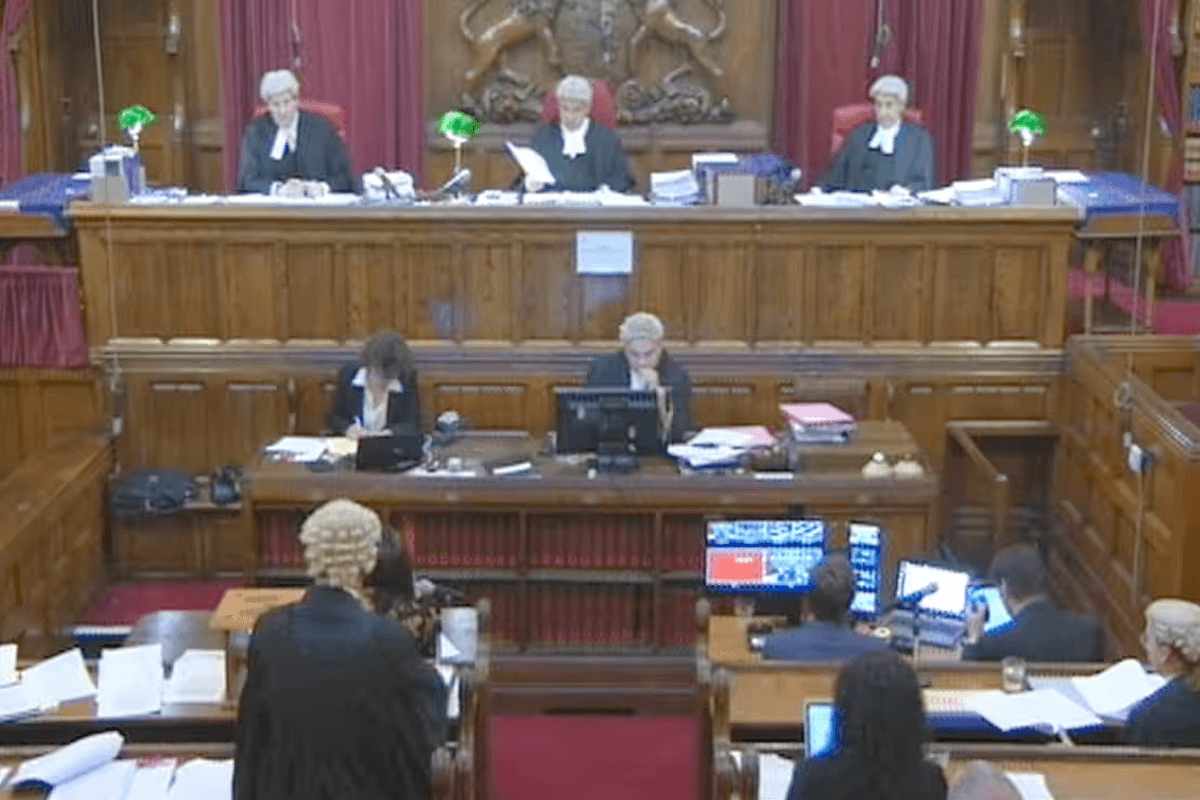
“Megan is a young teenage patient who suffered a stillbirth at 28 weeks, leading to a year-long police investigation, dropped only after post-mortem tests found that her pregnancy was lost due to natural causes. The stress of the investigation and her isolation from friends and support network following the seizure of her mobile and laptop compounded the trauma of the stillbirth, leaving her requiring emergency psychiatric care….
“Aisha is a vulnerable patient who suffered a premature delivery, having experienced similar problems in earlier pregnancies. Things happened so quickly that Aisha delivered on her own at home, only then seeking medical care. She told hospital staff that earlier in her pregnancy she had considered an abortion. As a result, she found herself interviewed under police caution and was required to surrender her phone and tablet, limiting access to friends and family support just when most needed. Aisha was also denied unsupervised access to her baby in the intensive care unit, needing to hand over expressed breastmilk to a receptionist….
“Yvette discovered that she was pregnant during the most intense phase of lockdown at the start of the Covid-19 pandemic. Pregnant by another man, Yvette and her three children moved back in with her estranged partner. In a state of ‘emotional turmoil’, Yvette hid her pregnancy while struggling to decide what to do. Having researched how to achieve an abortion, including through physical harm, she eventually contacted an abortion provider, pretending to be around 7weeks pregnant in order to obtain ‘abortion pills by post’ under the telemedical services introduced during lockdown. Yvette used the pills to terminate a pregnancy of 32–34 weeks before ringing for an ambulance….
“In sentencing Yvette, the trial judge referenced the earlier case of Eva. Eva had the misfortune to appear before a judge who had made no secret of his opposition to abortion: he had reasoned that a maximum term of life imprisonment was appropriate given that her crime of procuring a miscarriage very late in her pregnancy was one that ‘all right thinking people’ would consider more serious than ‘any offence on the calendar other than murder’ (but would ‘generously’ reduce her sentence by one-third in light of her guilty plea). Eva served over 3 years in prison before the Court of Appeal reduced this ‘manifestly excessive’ sentence, noting that her obstetric history was characterised by ‘disturbance, personal misery and entrenched problems’ and that she was a good mother.
“In a third case, a young mother, Laurai, was sentenced to over 2 years of imprisonment following a self-managed abortion, later explaining that prosecutors showed no interest in the culpability of her abusive and controlling partner….
“These stories, which were reported in a recent meeting in the UK Parliament, are sadly far from unusual. They reflect the collateral damage of a growing trend towards more enthusiastic enforcement of the archaic abortion laws of England and Wales. In such cases, women who present with miscarriage, stillbirth or a premature delivery have aroused the suspicion of health professionals, sometimes because ̶ like Aisha ̶ they speak honestly about having considered abortion earlier in their pregnancies. They then find themselves reported to the police, required to surrender electronic devices and sometimes advised by duty solicitors to speak to no one about events leading to their investigation, thus being denied emotional and full clinical support at a time of significant trauma.
“These women are not the only victims of British abortion laws: so too are those who committed the offences of which they are accused….
“While better law, policy and clinical care can help maximise the proportion of terminations occurring in early pregnancy ̶ with almost 90% of abortions in England and Wales now taking place before 10 weeks ̶ they will never entirely eliminate a small number of much later abortions. The issue raised by Yvette, Eva and Laura’s cases is not whether late abortion is preventable (nor still less whether it is desirable) but how best to respond to the rare cases in which it occurs.
Further, those who have cited Yvette’s case to criticise telemedical abortion services should remember that abortion pills are readily available from unregulated internet suppliers as well as licensed abortion services….
“In sentencing Yvette, the judge noted that he was obliged to apply the existing law and that those who considered it wrong to imprison women for illegal abortion should rather look to Parliament for change. Parliament should now act. It has recently voted by an overwhelming majority to rewrite the same criminal prohibitions against abortion in Northern Ireland, removing the possibility of prosecuting women for ending their own pregnancies. It has chosen to prioritise clinical considerations over political ones in making permanent the telemedical abortion services introduced during the pandemic. Further, it has shown compassion for those who access clinic services through legislating for buffer zones to protect them from obstruction and harassment. Action to remove women’s criminal liability for ending a pregnancy is also long overdue. Current laws offer the wrong response to acts of desperation from vulnerable women who rather deserve compassion, support and care ̶ not criminalisation.”
SOURCE: Journal of Medical Ethics, British Medical Journal, Editorial, by Sally Sheldon, Jonathan Lord, August 2023;49(8):523-24 (Excerpts) ; PHOTO: A still taken from footage of the first filming of a court case in England and Wales in 2013 in Guardian, May 2020.



